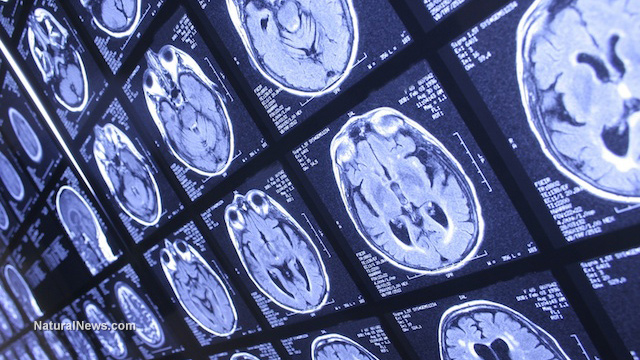Definition
Dean Ornish's
Eat More, Weigh Less diet focuses primarily on eating a low-fat diet of
plant products and simple carbohydrates to achieve weight loss and
better health without feelings of deprivation and hunger. It also
emphasizes stress reduction techniques and light exercise. Creator Dean
Ornish claims that the diet could prevent and even reverse some forms of
heart disease.
Origins
Ornish received his
Bachelor of Arts degree in humanities from the University of Texas at
Austin and received training in internal medicine at Baylor College of
Medicine and Harvard Medical School. He received further medical
training at Massachusetts General Hospital. While Ornish was a medical
student, he became interested in heart disease. In 1978, he began doing
research on patients with coronary heart disease.
Ornish
created a diet that was very low in fat and completely vegetarian and
studied its effects on the symptoms experienced by the patients. This
was the beginning of Ornish's research on the effects of low fat, low or
no-meat diets on weight loss, health, and heart disease. This original
diet was the basis for his “Eat More, Weigh Less” diet, as well as his
other diets.
Over the years,
Ornish published numerous books and articles and expanded his diets. All
of his diets revolve around the same basic principles, with additions
or changes depending on a person's goals. For example, Ornish's heart
disease prevention diet allows small amounts of lean meat or fish, while
his heart disease reversal diet is completely vegetarian.
Eat
More, Weigh Less: Dr. Dean Ornish's Advantage Ten Program for Losing
Weight Safely while Eating Abundantly was published in 2001. Six years
later, The Spectrum: A Scientifically Proven Program to Feel Better,
Live Longer, Lose Weight, and Gain Health was published. The spectrum
includes diet, exercise, stress reduction, and other factors.
As
of July 2012, Ornish was a professor of clinical medicine at the
University of California, San Francisco, and a practicing physician. He
founded and served as president of the Preventive Medicine Research
Institute (PMRI) located in Sausalito, California.
Description
The main focus
of Ornish's diets is eating more vegetable products and fewer meat
products. The diet for people trying to lose moderate amounts of weight
may permit small amounts of lean chicken or fish as well as some skim
milk or egg whites. For people with higher weight-loss goals, the diet
may be almost completely vegan and contain no meat or animal products.
The
diet is extremely low in fat, with fewer than 10% of calories coming
from fat. The strictest forms of the diet do not allow any nuts, seeds,
or avocados. The only oil allowed is a small amount of fish oil each day
due to its cardioprotective benefits.
Foods
that are encouraged include nearly all fruit and vegetable products,
especially leafy green vegetables, soy products, and whole grains.
Processed and animal products usually contain many more calories and fat
than similarly sized portions of vegetables, whole grains, fruits, and
soy. This is the key concept of Ornish's diet—a person may be able to
actually eat more and still lose weight. Eating foods with low caloric
densities (calories per quantity) helps promote satiety (feeling of
fullness) and prevent feelings of hunger.
The
Ornish Spectrum diet expands upon the concept of the spectrum from
Ornish's original diet. The Spectrum includes nutrition, stress
reduction, and physical activity, as well as factors like emotional
support. The Ornish Spectrum Program focuses on preventing conditions
like high cholesterol and high blood
pressure, both of which increase
the risk for heart disease. The Ornish Program for Reversing Heart
Disease is aimed at slowing, halting, and reversing the progression of
heart disease and other chronic diseases. Nutrition choices are more
limited for people in this group because of their health conditions.
Individuals
can also develop a personal spectrum plan. Objectives include losing
weight, lowering blood pressure, decreasing cholesterol, or preventing
or reversing the progression of conditions such as diabetes, heart
disease, or cancer.
SUPPLEMENTS.
Ornish recommends that people take a daily multivitamin along with fish
oil (if not eating seafood). People should not start taking dietary
supplements without first consulting with their physician.
FITNESS.
People are encouraged to do an aerobic exercise such as walking,
bicycling, or swimming for a minimum of 30 minutes each day or for an
hour every other day. The goal is to do three to five hours of exercise
each week. People may increase the amount of time exercising and the
intensity of the physical activity if they are physically able. Ornish
also recommends resistance training, also known
as strength training,
two to three times weekly.
Function
Ornish's Eat More,
Weigh Less diet and the Spectrum diet are
used for weight loss and
disease prevention. People trying to reverse heart disease or other
chronic diseases should only undergo the diet with the consent of their
physician.
Benefits
Because the Eat
More, Weigh Less diet includes almost only plant products, it is high in
antioxidants and fiber and low in saturated fat and cholesterol. Ornish
also claims that his diet can help prevent or reverse heart disease.
Precautions
Anyone thinking
about beginning a new diet and exercise plan should first consult their
primary physician. Patients with heart disease or other chronic
conditions should be especially cautious. Although Ornish has published
data about how his diet may be able to prevent or reverse heart disease,
no major dietary changes should be made without consulting a physician.
Ornish's diet is not a replacement for medications prescribed by a
doctor. In addition, the diet does not replace any medically recommended
procedures. It is important to discuss all possible options with a
physician and to make decisions based on professional recommendations.
If
a person is not used to eating large amounts of fiber, additional fiber
should be added to the diet slowly to avoid intestinal problems.
Drinking fluids with fiber will help move the fiber through the
intestines.
Risks
If people on the
Ornish diet stop eating meat and animal products, they should make sure
that they are still receiving enough dietary protein and other
nutrients. Discussing the diet plan with a physician or registered
dietitian will help ensure that nutritional needs are being met.
Because
of the very low fat allowance of some versions of the Ornish diet,
there is some concern that people on this diet may not get enough
vitamin E.
Research and general acceptance
The
benefits of any diet that is low in fat and includes many different
fruits, vegetables, and whole grains are generally accepted. Ornish has
led many controlled research studies to test his diet and has published
the results in peer-reviewed journals such as the Journal of the Society
of Behavioral Medicine, the Lancet, and the Journal of the American
Medical Association.
In 1990,
Ornish and several coauthors published an article titled “Can Lifestyle
Changes Reverse Coronary Heart Disease? The Lifestyle Heart Trial” in
the Lancet. This was the first study to investigate whether changes in
lifestyle alone, without the use of prescription drugs, could stop the
progression of, or even reverse, coronary heart disease. The patients
selected to participate had severe coronary heart disease and were
divided randomly into two groups: those who would follow Ornish's
program, and those who would follow the usual recommendations for such
patients, including moderate lifestyle changes and cholesterol-lowering
medications, if necessary.
Ornish's
regimen included a diet that was very low in fat and completely
vegetarian. It also emphasized moderate exercise, stress-reduction
techniques, and quitting smoking (if applicable). The diameter of the
coronary artery was measured at the beginning of the study and again at
the end of the study one year later. For people following the usual
recommendations for coronary patients, the average percentage of
narrowing was 42.7% at the beginning of the study and increased to 46.1%
at the end of the study. For patients on Ornish's plan, the average
percentage of constriction was reduced 2.2% during the period of the
study, from 40.0% to 37.8%. For the patients with the most constriction,
the difference was even greater.
Since
the 1990 study, Ornish and various coauthors have continued to research
how lifestyle changes alone can positively affect heart disease in both
the long- and short-term. In 2007, he published a study in the Journal
of the Society of Behavioral Medicine that found reductions in the risk
factors of coronary heart disease in just three months.
Resources
Larsen, Laura, ed. Diet and Nutrition Sourcebook. Detroit, MI: Omnigraphics, 2011.
Ornish,
Dean. Dr. Dean Ornish's Program for Reversing Heart Disease: The Only
System Scientifically Proven to Reverse Heart Disease Without Drugs or
Surgery. New York: Random House, 1990.
———.
Eat More, Weigh Less: Dr. Dean Ornish's Advantage Ten Program for
Losing Weight Safely while Eating Abundantly. New York: Quill, 2001.
———. Love and Survival: The Scientific Basis for the Healing Power of Intimacy. Thorndike, ME: Thorndike Press, 1998.
———. Stress, Diet, and Your Heart. New York: Holt, Rinehart, and Winston, 1983.
———.
The Spectrum: A Scientifically Proven Program to Feel Better, Live
Longer, Lose Weight, and Gain Health. New York: Ballantine, 2007.
Willis, Alicia P. ed. Diet Therapy Research Trends. New York: Nova Science, 2007.
Dansinger,
Michael L., et al. “Comparison of the Atkins, Ornish, Weight Watchers,
and Zone Diets for Weight Loss and Heart Disease Risk Reduction.”
Journal of the American Medical Association 293 (January 5, 2005):
43–53.
Feingold, Linda. “Dr.
Dean Ornish Covers The Spectrum: A Scientifically Proven Program to Feel
Better, Live Longer, Lose Weight and Gain Health.” American Fitness 26,
no. 4 (July/August 2008): 35.
Gardner,
Christopher D., et al. “Comparison of the Atkins, Zone, Ornish, and
LEARN diets for Change in Weight and Related Risk Factors Among
Overweight Premenopausal Women: The A to Z Weight Loss Study: A
Randomized Trial.” Journal of the American Medical Association 297, no. 9
(March 7, 2007): 969–77.
Hellmich,
Nanci. “Bill Clinton Declares Vegan Victory.” USA Today, August 23,
2011.
http://yourlife.usatoday.com/fitness-food/diet-nutrition/story/2011-08-23/Bill-Clinton-declares-vegan-victory/50111212/1
(accessed July 13, 2012).
Koertge,
Jenny, et al. “Improvement in Medical Risk Factors and Quality of Life
in Women and Men with Coronary Artery Disease in the Multicenter
Lifestyle Demonstration Project.” American Journal of Cardiology (June
1, 2003): 1316–22.
Ornish, Dean. “Low-Fat Diets.” The New England Journal of Medicine 338 (January 8, 1998): 127–29.
“Dr.
Dean Ornish Program for Reserving Heart Disease.” West Virginia
University. http://www.hsc.wvu.edu/Wellness/Dr-Dean-Ornish-Program
(accessed September 23, 2012).
Harvard
School of Public Health. “The Best Diet Is the One You'll Follow.” The
Nutrition Source, Department of Nutrition, Harvard University.
http://www.hsph.harvard.edu/nutritionsource/healthy-weight/best-weight-loss-diet
(accessed September 27, 2012).
“Ornish Diet.” U.S. News & World Reports. http://health.usnews.com/best-diet/ornish-diet (accessed July 13, 2012).
“The Ornish Spectrum.” http://www.ornishspectrum.com (accessed September 27, 2012).
Preventive Medicine Research Institute. “Research Highlights.” http://www.pmri.orgresearch.html (accessed September 27, 2012).
Zelman,
Kathleen M. “Review: Dean Ornish's The Spectrum.” WedMD.
http://www.webmd.com/diet/features/review-dean-ornish-the-spectrum
(accessed July 23, 2012).
———. “Review: Eat More, Weigh Less.” WebMD. http://www.webmd.com/content/pages/9/3068_9408.htm (accessed July 23, 2012).
American Heart Association, 7272 Greenville Ave., Dallas, TX 75231, (800) 242-8721, http://www.americanheart.org.
Centers
for Disease Control and Prevention, Division for Heart Disease and
Stroke Prevention, 4770 Buford Hwy NE, Mail Stop F-72, Atlanta, GA
30341-3717, (800) CDC-INFO (232-4636), TTY: (800) 232-6348, Fax: (770)
488-8151, cdcinfo@cdc.gov, http://www.cdc.gov/dhdsp.
National
Heart, Lung, and Blood Institute, PO Box 30105, Bethesda, MD
20824-0105, (301) 592-8573, TTY: (240) 629-3255, Fax: (240) 629-3246,
nhlbiinfo@nhlbi.nih.-gov, http://www.nhlbi.nih.gov.
Helen DavidsonLiz Swain
~ http://www.msn.com/en-us/health/nutrition/dean-ornishs-eat-more-weigh-less/ar-AAnOTq?ocid=UP97DHP
~


